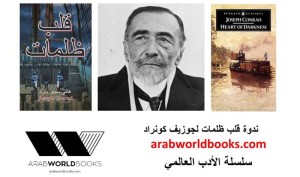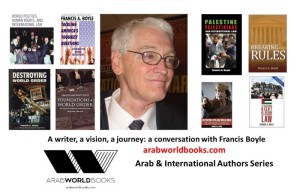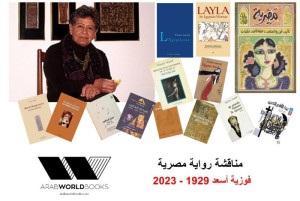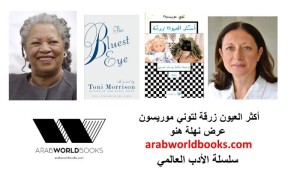Hesham Taha
Al-Ahram Thursday 20 Mar 2014
In his lengthy autobiography, entitled 'I Lived Twice', Egyptian media figure Hamdy Kandil reveals much about his rich life and the characters that intertwined with it
I'sht maratein (I Lived Twice) by Hamdy Kandil, Dar El-Shorouk Publishing, Cairo, 2014, pp.592
Renowned media personality Hamdy Kandil begins his enjoyable yet lengthy autobiography by speaking about his childhood, which was a contented one. He was born in 1936 in a large family that lived in Tanta in Egypt's Nile Delta. His early interest in socialism was manifested in buying Al-Ishtrakkiyah (Socialism) newspaper. When Hamdy talked to his father, who was a teacher, about social justice and equality as socialist principles, his father replied that these are tenets of Islam and made him join the Muslim Youth Society while warning him against joining the Muslim Brotherhood. An interesting scene occurs when Kandil threw socialist pamphlets inside the famous Al-Sayed Al-Badawi Mosque immediately after Friday prayers, which he felt at the time was like a carnival.
Two of his school colleagues were celebrities: Amr Moussa, the former Arab League secretary general, and the late Gamal Badawi, the famous writer and historian.
Kandil's character seems to be built upon four basic qualities: love of adventure; having initiative; stubbornness; and boldness. It transpires that he was extremely organised, for he used to divide his days into numbers of pages when he was a school student. Also he was harsh upon himself, walking from Cairo University back to his home in Shubra, to teach himself the virtue of saving. One episode shows his obstinacy: when he smoked three hashish cigarettes to prove his steadfastness, though he felt dizzy.
Feeling out of place in the Faculty of Medicine after entering it in 1953, he became managing editor of the Student Union magazine, which was printed in Akhbar El-Yom newspaper. The well-known journalist Mustafa Amin offered Kandil a writing position with Akher Sa'a (Last Hour) and a salary. Thus, it helped him to leave the Faculty of Medicine and join an "easy" faculty, as he puts it.
His first trip abroad was to Switzerland as a student upon invitation of the Moral Re-Armament group. But he felt uneasy about the group's activities and called through newspaper articles for the closure of its branch in Egypt. Subsequently it was closed. In another trip he met, as Students' Association president, late Palestinian President Yasser Arafat, who told him that he can see Palestine from where they were on a hill in Athens. In retrospect, he saw this situation either as an exaggeration of Arafat's excessive attachment to his homeland, or as a politician selling illusions to people.
Working as a layout man in the Syrian Al-Ayyam newspaper in Damascus in 1959 was a prelude to a series of adventures: leaving this newspaper, working in Al-Jamahir, a socialist leaning newspaper, and nominating himself in the elections. Egyptian Intelligence threatened to seize his ID if he didn't withdraw his nomination. He published the complete story and his ID was seized. Lacking any official documents, since Egypt and Syria formed the United Arab Republic, he travelled to Lebanon with a friend. He returned to Syria by posing as a porter.
Delighted to tread new grounds, he joined a group of friends working in Arab Television (Egypt's national TV) in 1960. In 1961, Kandil worked as the presenter of the programmeAqwal Al-Suhf (Press Review). He went to become the director of the Arab Broadcasting Stations Union in 1969.
During the 1960s, Kandil built an almost unparalleled reputation as a TV field reporter. He succeeded in recording the celebration of the return of the first Algerian president, Ahmed Ben Bella, to his homeland in 1962, travelling in a truck carrying watermelons from the Moroccan borders to Algiers. He was dispatched to Yemen in 1962 to send televised reports following its revolution, which exceeded 100 reports over three months. Thus, he witnessed the beginnings of the Egyptian military involvement in the war in Yemen. In 1963, he was sent to Iraq to record the aftermath of the coup against Iraqi President Abd Al-Karim Qasim.
After the death of President Gamal Abdel Nasser, Kandil felt he wouldn't be able to serve under another president. Kandil was appointed manager of the Department of the Free Flow of Information and Communication Policies for UNESCO in 1974 where he stayed until resigning in 1986.
In 1998, Kandil accepted Egyptian Minister of Information Safwat El-Sherif's proposal to present a television programme by the name Ra'is El-Tahrir (Editor-in-Chief). It was to focus on presenting a news digest of Arab newspapers but it also dealt with local and regional issues, especially the Palestinian cause. The programme soon ran into bumpy roads, until it was stopped altogether. The same happened with Kandil's programme, which bore the identical name, when he began to air it from a private Egyptian satellite channel.
Moving to the Emirates in 2004, Kandil launched a new programme, changing its name to Qalam Rosas (Pencil), aired by Dubai TV. For the third time Kandil's programme suffered the same fate. All these programmes achieved massive popularity for Kandil among young generations as well as old. The London-based Arab Media Watch organisation awarded Kandil the 2006 Media Accomplishment Award to commend him for his "creativity and participation in the media world" over the course of five decades.
Kandil mentions three poignant personal scenes in his autobiography: his father's death; his first wife's tears before accepting a proposal to divorce; and finally his own burst of tears after divorcing his second wife.
One of the truly exciting episodes in the book's 25 chapters is the cinema star Naglaa Fathi's proposal to marry him in a stark challenge to Egyptian customs. She proved to be a source of support to him in different moments of his life.
Two celebrities receive Kandil's superb close analysis: Saudi media tycoon Sheikh Saleh Kamel and Safwat El-Sherif, information minister for more than 22 years. To say that Kandil's acquaintances were innumerable is an understatement. However, his friendship with Mustafa Tlass, former Syrian defence minister, is definitely the most bizarre of them all. In the same vein, his controversial opinion about Farouk Hosni, minister of culture for 24 years, stating that Hosni was the best culture minister Egypt has known after Tharwat Okasha!
Kandil also confesses a peculiar habit of "keeping" the keys to hotel rooms he once occupied. This interest led Kandil into an extremely embarrassing situation when the Egyptian police stopped the delegation of Ahmed Mukhtar M'bo, former director-general of UNESCO, asking them to return a missing hotel room key. He was obliged to disclose his secret interest to M'bo, who nevertheless immediately offered him the managerial job he kept for 12 years!
After Kandil's final return to Egypt in 2009, he began to participate in political activism through joining the National Association for Change. He presents a damning yet truthful testimony of Mohamed ElBaradei. He also mentions his dialogue with deposed president Mohamed Morsi in the Presidential Palace after he began his period of rule.
His apology for interviewing Muslim Brotherhood members while they were in military prison in 1964 is commendable because he saw it wasn't gentlemanly to interview those whose freedom was restrained. It was praised by Muslim Brotherhood leaders. However, Kandil doesn't inform us on the circumstances of being present in Egyptian War Minister Abdel Hakim Amer's home where he made Kandil acquainted with the foiling of the Muslim Brotherhood's attempt to drive Egypt into chaos. It is mentioned in the briefest of paragraphs. It is strange that Kandil, who remembered the name of a Yugoslav Muslim driver in the 1960s, didn't elaborate on the matter. He says that if we asked citizens at the time to choose between social justice and democracy they would prefer social justice.
Is 'Living Twice' Kandil's Swan song?
By: Editor - on: Sunday 1 June 2014 - Genre: Book Reviews
Upcoming Events

Joseph Conrad's Heart of Darkness Discussion
April 27, 2024
Join us for a special discussion of Joseph Conrad&...

A writer, a vision, a journey: a conversation with Francis Boyle
February 24, 2024
This event took place on 24 February 2024 Yo...

Discussion of Fawzia Assaad’s An Egyptian Woman
November 25, 2023
In celebration of the life and outstanding achieve...

Toni Morrison's The Bluest Eye, A Presentation and Discussion
October 28, 2023
This presentation and discussion of Toni Morrison&...
